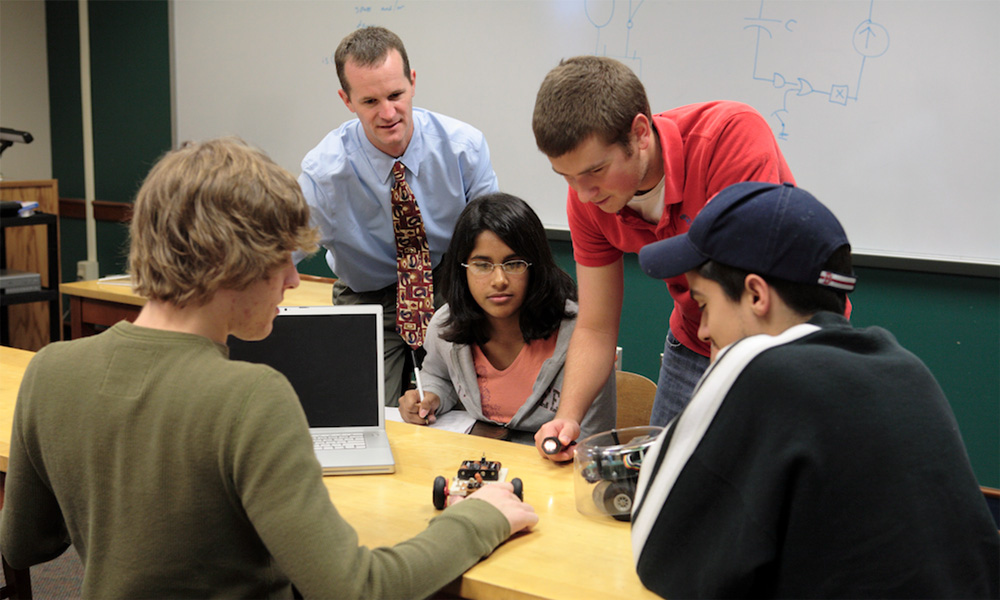Denison University has been awarded a grant of $275,000 from the Arthur Vining Davis Foundations to fund a new model that welcomes and supports underserved students in the sciences. The model is rooted in inclusion and support for these students.
Denison University President Adam Weinberg notes, “We have fantastic students coming to Denison. We also know that giving students a sense of belonging in the classroom is crucial to academic success. This requires addressing the deeper work of how institutional policies, structures, and classrooms can help ensure inclusion. This results in excellence for all students in the sciences.”
Denison University Provost Kim Coplin notes, “There is a story to tell here that we’ve been missing in our national discussions about inclusivity in the sciences. Denison is dedicating significant resources to this area of significant need and opportunity. We hope this will result in these students continuing into science careers and graduate schools after Denison.”
The Vining Davis Foundations grant will fund work over the next three years.
This funding allows faculty in the sciences to expand ongoing work that began with high-impact practices in the classroom to a more community-based approach to a sense of belonging for science students. A committee of science faculty members will oversee the project to fully launch a peer mentorship program, designed in collaboration with Leonard Geddes of The LearnWell Projects, where peer mentors work with incoming students and also collect information on student experiences that will be used for deeper insight.
The committee also will design programs for student/faculty research collaboration and engagement with professional scientists. Evidence collected will shape pedagogical workshops on creating inclusive classrooms, and inform long term data collection. In the final year, science faculty will share experiences and developed practices with faculty colleagues outside of the sciences and beyond Denison.
The program is expected to grow and influence the entire campus. Coplin adds, “At the grant’s start, our constituency will be underserved science students — students of color, low-income, and first-generation students. We will focus on classroom inclusivity, belonging, and persistence in the sciences. The wonderful thing is this has larger implications for the entire student body. By the grant’s end, our constituency will broaden to faculty and underserved students across the campus.”
“We are excited to use evidence-based systems to address this issue, and to measure our outcomes against our goals,” she says. “And we hope that our work will be not only successful, but can be used as a model for all of higher education.”
